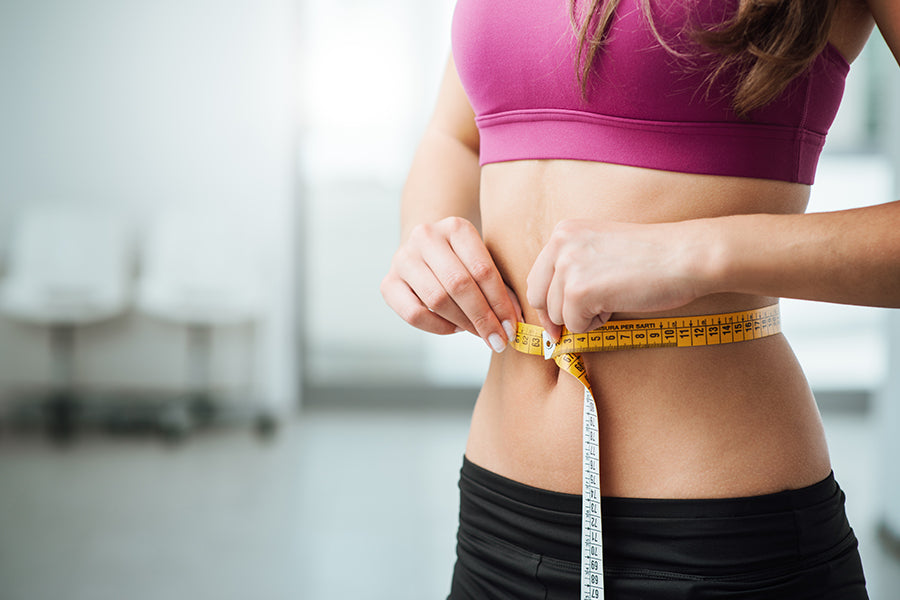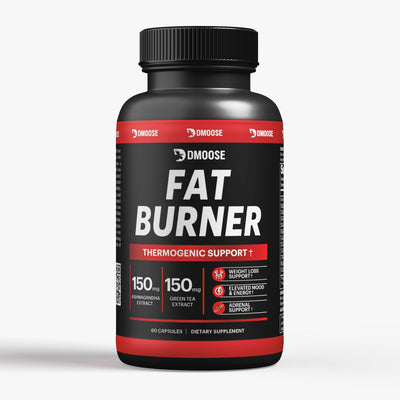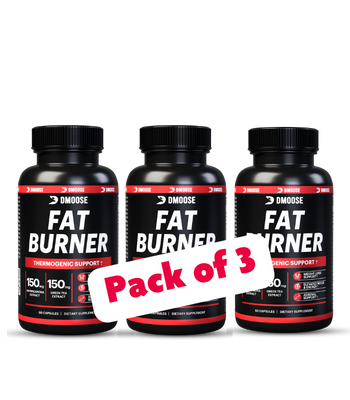We’ve all been there! Standing in front of the mirror, wishing we could just shed those extra pounds overnight. The desire to lose weight fast can be overwhelming, but let's be honest: losing 30 pounds in a month sounds like a dream come true, right?
While it's possible, it’s definitely not easy! And it's important to note that rapid weight loss like this isn't always considered safe. So, if you're determined to make it happen, you’ll need a solid plan and some serious dedication.
With the right approach, though, you can start seeing results, and using Thermogenic Fat Burner could give your journey that extra push to speed things up. Let’s dive into 12 simple steps to get you started!
Lose 30 Pounds in a Month
Losing 30 pounds in 30 days sounds tempting, but aiming to drop a pound daily is unrealistic and risky. To lose one pound, you need to burn 3,500 more calories than you consume, which can harm your body’s natural rhythm, increase injury risks, and even be dangerous.
However, if you're significantly overweight (BMI above 35 kg/m2), you might carry extra water weight, making faster weight loss possible.
With a balanced plan focused on healthy eating and exercise, you can safely aim to lose 30 pounds in a month.
1. Set a Realistic Goal
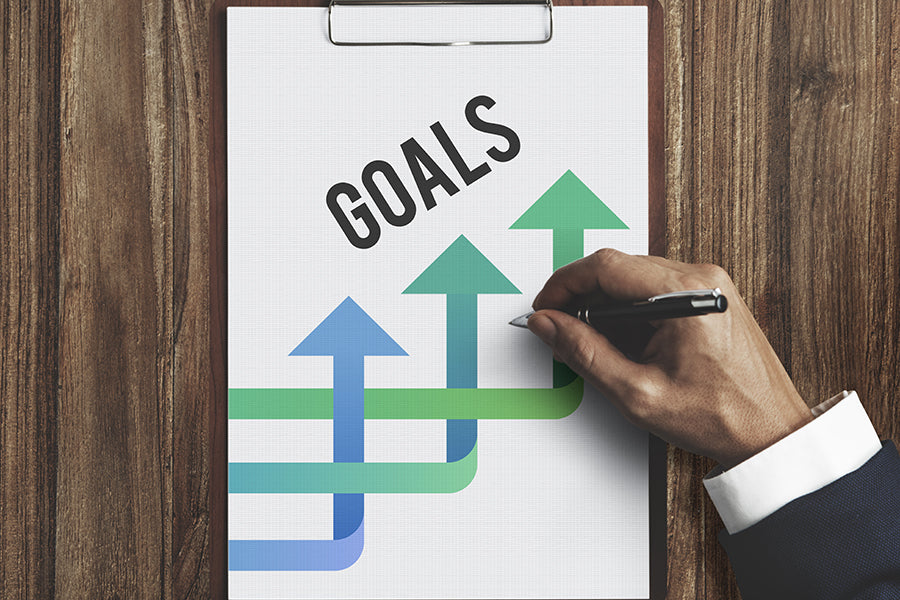
Setting a goal to lose 30 pounds in a month is ambitious, but only with the right plan and support, it's possible. However, it's important to recognize that this goal may not be suitable for everyone.
Before starting any weight loss program, especially one as intense as this, it's essential to consult with a healthcare professional, particularly if you have any underlying health conditions.
2. Add Protein to Your Diet
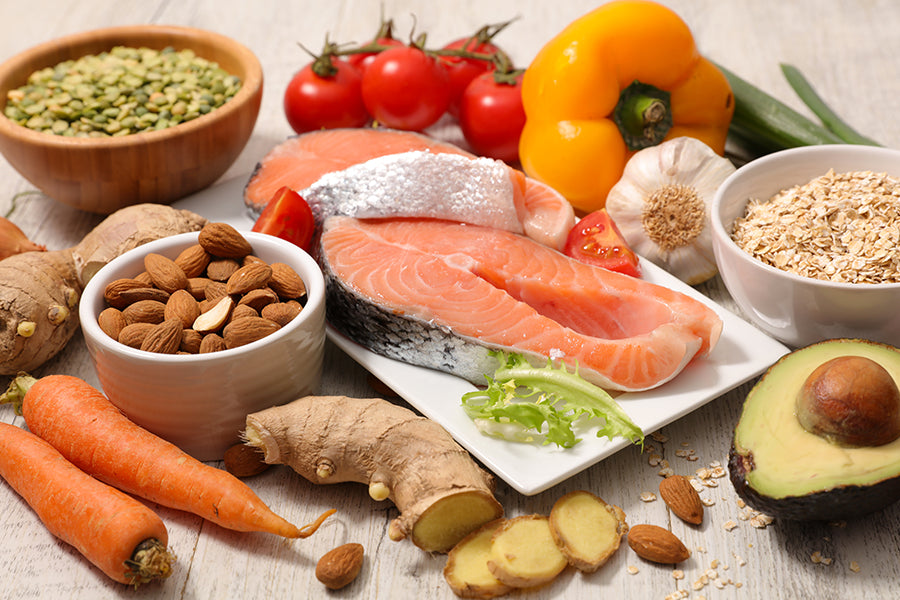
Eating protein-rich foods and protein supplements like Whey Protein can aid weight loss by keeping you full longer and reducing cravings for snacks between meals. Protein is more satiating than carbohydrates or fats, so it helps control your hunger and keep you satisfied.
In addition, protein helps preserve muscle mass during weight loss, which is crucial for maintaining a healthy metabolism. A higher protein intake also boosts the thermic effect of food, which is the energy required to digest and process what you eat. It leads to an increase in your daily calorie burn.
Incorporating protein-rich foods like lean meats, poultry, fish, beans, lentils, nuts, and seeds into your diet can support your weight loss efforts while ensuring you maintain a healthy, balanced nutrition plan.
3. Calculate Your Caloric Needs

To lose 30 pounds in a month, you need to create a calorie deficit, which means you must burn more calories than you consume.
You can use an online calculator or consult with a registered dietitian to figure out your daily caloric needs. This calculation takes into account your age, gender, height, weight, and activity level. Once you know your daily caloric needs, you can create a calorie deficit by reducing your calorie intake and increasing physical activity.
However, drastically cutting calories can negatively impact your health, leading to fatigue, nutrient deficiencies, and a slower metabolism. It's crucial to ensure your diet is balanced, providing all the necessary nutrients while staying within your daily caloric limit. To help burn more calories, you can also consider adding fat burner capsules to support your weight loss efforts.
4. Design a Balanced & Nutritious Meal Plan

A healthy diet is essential for weight loss and provides the necessary nutrients and energy to support your physical activity levels.
Start by focusing on whole, nutrient-dense foods, such as fruits, vegetables, whole grains, lean proteins, and healthy fats. These foods offer essential nutrients and fiber, helping you feel fuller for longer and reducing the urge to snack on unhealthy options.
Consume a balanced mix of macronutrients: carbohydrates, proteins, and fats. Carbohydrates provide energy, proteins support muscle growth and repair, and fats help in the absorption of vitamins and minerals. A well-rounded meal plan can also help prevent nutrient deficiencies, which can lead to health problems.
Related Article: Weight Loss: 8 Fiber-Rich Vegetables to Add to Your Diet
5. Stay Hydrated

Staying hydrated is necessary for overall health and weight loss. Drinking plenty of water can help you feel full, reduce cravings, and prevent overeating. Drink at least 6-8 glasses or more if you're exercising or in a hot environment.
Drinking water before meals can also help you eat less, filling your stomach and reducing your appetite. Additionally, drinking water can help your body flush out toxins and waste, promoting optimal organ function and weight loss.
If you find it challenging to drink enough water, consider adding lemon or other fruits to infuse your water with flavor, or carry a water bottle with you throughout the day as a reminder to drink more.
Limiting sugary and high-calorie beverages such as soda, energy drinks, and fruit juice is essential, as these can sabotage your weight loss efforts.
6. Incorporate Regular Exercise

Regular exercise is an essential component of any weight loss program, and it can help you create a calorie deficit while improving your overall health and well-being. Strive to engage in moderate-intensity exercise for at least half an hour, such as activities like brisk walking, jogging, cycling, or swimming.
Additionally, incorporating strength training exercises, like weightlifting, can help you build muscle mass and enhance your metabolism. Building lean muscle not only improves your strength but also helps enhance your metabolism, making it easier to maintain or lose weight over time.
Consider working with a personal trainer or joining a fitness class to stay motivated and receive guidance on proper form and technique.
7. Practice Mindful Eating

Practicing mindful eating can help you stay in tune with your body's hunger and fullness cues and prevent overeating. Start by eating slowly and savoring each bite rather than rushing through your meals. It can help you feel more satisfied and avoid mindless snacking.
Additionally, try to eat without distractions, such as watching TV or using your phone. It can help you focus on your food and prevent overeating. Consider keeping a food journal to track your eating habits and identify improvement areas.
8. Monitor Your Progress

Weigh yourself regularly, but avoid weighing yourself daily as weight can fluctuate due to factors such as hydration levels and menstrual cycle. Aim to weigh yourself once a week at the same time of day and under the same conditions.
Celebrate your progress, even small successes, and make adjustments as needed. If you're not losing weight as quickly as you'd like, consider adjusting your caloric intake or increasing your physical activity levels.
9. Get Enough Sleep

Sleeping is crucial for weight loss as it can help regulate hormones controlling hunger and appetite. Aim for 6-8 hours of sleep per night to ensure your body is well-rested and functioning optimally.
In addition to regulating hormones, sleep also plays a crucial role in muscle recovery and repair. Adequate sleep can help improve physical performance during exercise, allowing you to burn more calories and achieve your weight loss goals more effectively.
Related Article: Why 8 Hour Sleeping Is Essential For Healthy Lifestyle?
10. Find Support & Accountability

Finding support and accountability helps you stay on track with your weight loss goals. Share your goals with family and friends and ask for their support in your weight loss journey.
Consider joining a support group or online community to connect with others working towards similar goals. It can provide community and accountability and offer helpful tips and advice.
11. Drink Green Tea

Green tea can aid in weight loss due to its content of antioxidants and catechins, particularly epigallocatechin gallate (EGCG), which can help stimulate the body's metabolic rate and increase fat oxidation.
The caffeine in green tea can also increase energy expenditure and further enhance fat burning. Additionally, green tea may help reduce appetite and improve satiety, which can reduce overall calorie intake.
12. Drink Cherry Juice Before Bed

While drinking cherry juice before bed may not directly aid in weight loss, it can indirectly contribute to weight loss efforts through its potential effects on sleep quality. Tart cherry juice is rich in melatonin, a hormone that regulates sleep-wake cycles.
Consuming cherry juice before bed may improve sleep quality and duration, reducing the risk of weight gain and obesity. Poor sleep can lead to weight gain and disrupt metabolism, making losing weight difficult.
By improving sleep quality and promoting better rest, cherry juice may indirectly support weight loss efforts. However, it's important to note that cherry juice is also high in sugar, so enjoy it in moderation as part of a balanced diet and exercise routine.
The Bottom Line
Losing 30 pounds in a month is way too unrealistic and challenging. Still, it is an achievable goal if you stay consistent and eat mindfully. While there are several ways to safely lose 30 pounds, one option you can consider is trying DMoose Fat Burner.
It is the best fat burning supplement that’ll help you lose weight faster and safely. You can achieve a better metabolism, reduced stress, and effective fat loss. Guaranteed!






